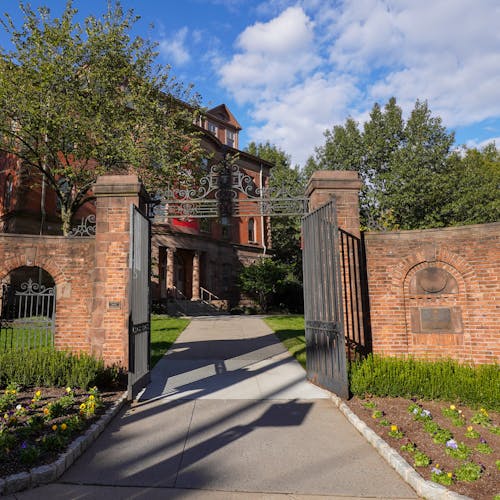ARMSTRONG: Technology provides too many choices

As children, for the millennial generation, opportunities were endless. Baby Boomers and those of Generation X, who created practical, financially secure lives, innately expected more from their children born within the years of 1980 and the mid-1990s. My parents fulfilled their lifelong goal — obtain careers that put food on the table and paid the bills. But they encouraged me to think hard and large about what I wanted to do with my life. I wanted to be the president, I wanted to be a lawyer and the sky was really the limit. Fortunately, engineering is what I landed on, and I’m grateful for their support. They wanted a lush lawn and encouraged me to not only want a lush lawn, too, but also a flourishing garden in terms of a life. What our parents’ generation didn’t foresee was the unprecedented and massive emergence and influence of technology in today’s world. Because there’s endless options available to us, alongside the flaunting of peers’ perfect lives online and many other contributing variables, millennials are in an interesting pickle.
Humans are very interesting and unique beings. What separates humans from any other living species is our ability to reason and think, also known as our intellect. From the beginning of time, humans have definitely utilized this amazing characteristic and it shows with how far we have gotten. With Locke and Hobbes getting to the nitty gritty about the way civilization should operate with respect to the natural state of man, it’s valid to say that us humans have figured out a thing or two. However, we have also created some disorder, simply because there isn’t a list of rules to follow regarding governments and social order and all that good stuff — that is not subjective. For example, in my thermodynamics course last semester, the professor asked us a question: Do you want your exam to start at 8:40 or 9:30? A number of students discussed the advantages of either option, and of course, there was a disagreement and momentary chaos. However, if she had not given us the option, none of us would have complained about the exam starting at 8:40 or 9:30. It is human nature to think we want to have a say in the way things operate, but really we thrive when decisions are made for us.
Why do humans thrive when we have no say? Let’s go back to the example with my professor. She decided on a time after a bit of feedback, and say a person who did poorly on the exam blamed it on the time in which they took that exam. The individual probably feels as though they chose the wrong time and the untimeliness of the exam affected how he or she performed. When humans make a decision with two or more choices available, there is room for them to ponder what life would have been like if they chose the other option, which is discouraging. But when we don’t have a choice to do our homework, when we don’t have a choice to go to class, when we don’t have a choice to go to college or get a job, we’re actually happier because the decision to do those things were predetermined. We don’t have the costly luxury of considering what life would have been like if we had not done the homework or attended college or chose that job. Though some enjoy the freedom of making decisions and trust themselves enough to not make an incorrect choice, a majority of society isn’t as sure of themselves.
What does technology have to do with all of this? Let’s summarize the concept of humans thriving without options as the choice paradox. With the opportunity to "admire" and be happy for everyone on social media what inevitably happens is social comparison. Though some would argue that humans are wired to connect, it’s how we’re connecting that is causing the problem. Because we see a ridiculous amount of posts that inflate real life, doubts flood in about life paths. How many times have you said under your breath, “I wish I could travel there” or “I wish I was at that basketball game,” or anything of that nature? Because we came into college with the obligation to know the career we want in addition to the daunting idea that we are behind most of our peers, unhappiness is a logical conclusion. But there’s hope in utilizing social media to not make you envious but instead actually a little bit happier — actively engaging. What does that look like? Active social media engagement is what it sounds like: Liking things, messaging people or sharing posts. Do more of that, and more real life engagement, and it’s scientifically proven to increase happiness. Live your life, with eyes on your prize!
Yazmin Armstrong is a School of Engineering junior majoring in Chemical and Biochemical Engineering. Her column, "The Digital Dilemma," runs on alternate Thursdays.
YOUR VOICE | The Daily Targum welcomes submissions from all readers. Due to space limitations in our print newspaper, letters to the editor must not exceed 500 words. Guest columns and commentaries must be between 700 and 850 words. All authors must include their name, phone number, class year and college affiliation or department to be considered for publication. Please submit via email to [email protected] by 4 p.m. to be considered for the following day’s publication. Columns, cartoons and letters do not necessarily reflect the views of the Targum Publishing Company or its staff.



